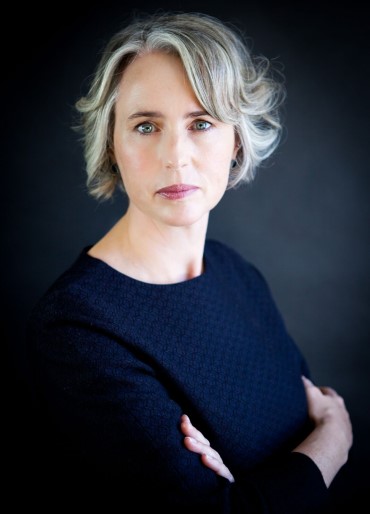An Garda Síochána ‘very receptive’ to recommendations on custody interviews

Shalom Binchy
A solicitor who criticised An Garda Síochána for forcing solicitors to break public health guidelines to advise clients in custody has said the force is starting to address the issue.
Solicitor Shalom Binchy shared the findings of her firm’s recent survey of solicitors on Friday in a webinar exploring experiences with gardaí during the COVID-19 crisis.
She shared her own “extremely stressful” experience of attending a Garda station to advise a client, in which she brought her own mask and gloves but could not avoid coming within “two inches” from some gardaí, “never mind two metres”.
In some Garda stations, solicitors have reported that social distancing is not being practised, PPE is not being used or provided, and confidentiality is being compromised.
The report from Shalom Binchy & Co. Solicitors said solicitors and suspects were left with a choice between breaking public health guidelines or “reverting to the pre-2014 practice, i.e. the right of access to legal advice before and after questioning but not during questioning”.
Ms Binchy said: “An Garda Síochána have been very receptive to the recommendations we put out in our report and have been working collaboratively with a view to implementing some – not all – of those recommendations. They have been very receptive and I want to acknowledge that.”
The webinar, hosted by Dr Vicky Conway of Dublin City University, also heard from third sector organisations working with older people and women fleeing domestic abuse, representatives of the Irish Traveller community, and the Policing Authority.
Caitriona Gleeson, programme and communications manager at Safe Ireland, said there were marked improvements during the COVID-19 pandemic in An Garda Síochána’s response to domestic abuse which should continue after the crisis is over.
Dr Sindy Joyce, an Irish Traveller human rights activist who completed a PhD on the relationship between Travellers and An Garda Síochána, said the temporary ban on evictions of Traveller sites had provided “relief for the community”.
Although recognising positive experiences between gardaí and Travellers during COVID-19, particularly in the context of community policing, she said the Traveller community has faced “widespread discrimination” and called for gardaí to undergo anti-racism training.
Martin Collins, co-director of Pavee Point Traveller and Roma Centre, said: “We shouldn’t be at a stage where we have to emphasise and celebrate these examples of positive relationship-building between An Garda Síochána and my community. Positive policing and professional policing interventions should be the norm.”
He added: “Our starting point has to be the recognition for potential structural and institutional racism to be present, not only in An Garda Síochána but in other institutions of the State. We need to make sure that all of our institutions are representative of the population.”
Bob Collins, chair of the Policing Authority, said gardaí had a “great deal” to learn from the past three months “to ensure that it can continue, that it isn’t just a fair-weather friend”.
“It may not be possible to deploy resources in the same way on a continuing basis because of the costs involved, but it is possible to deploy the same approaches, the same attitudes, the same level of understanding, the same level of engagement that has been seen in the last three months,” he said.
“That does not require the expenditure of additional resources – it requires that willingness to listen, to learn from the satisfaction of the work that has been done over the last period, and to integrate it permanently into the life and style of An Garda Síochána.
“That will be, I think, one of the gifts that the people – by suffering through these last months, for however long this health emergency stays with us – have given to the policing service: to learn from that and to embed it permanently in the life and style of policing in Ireland.”









